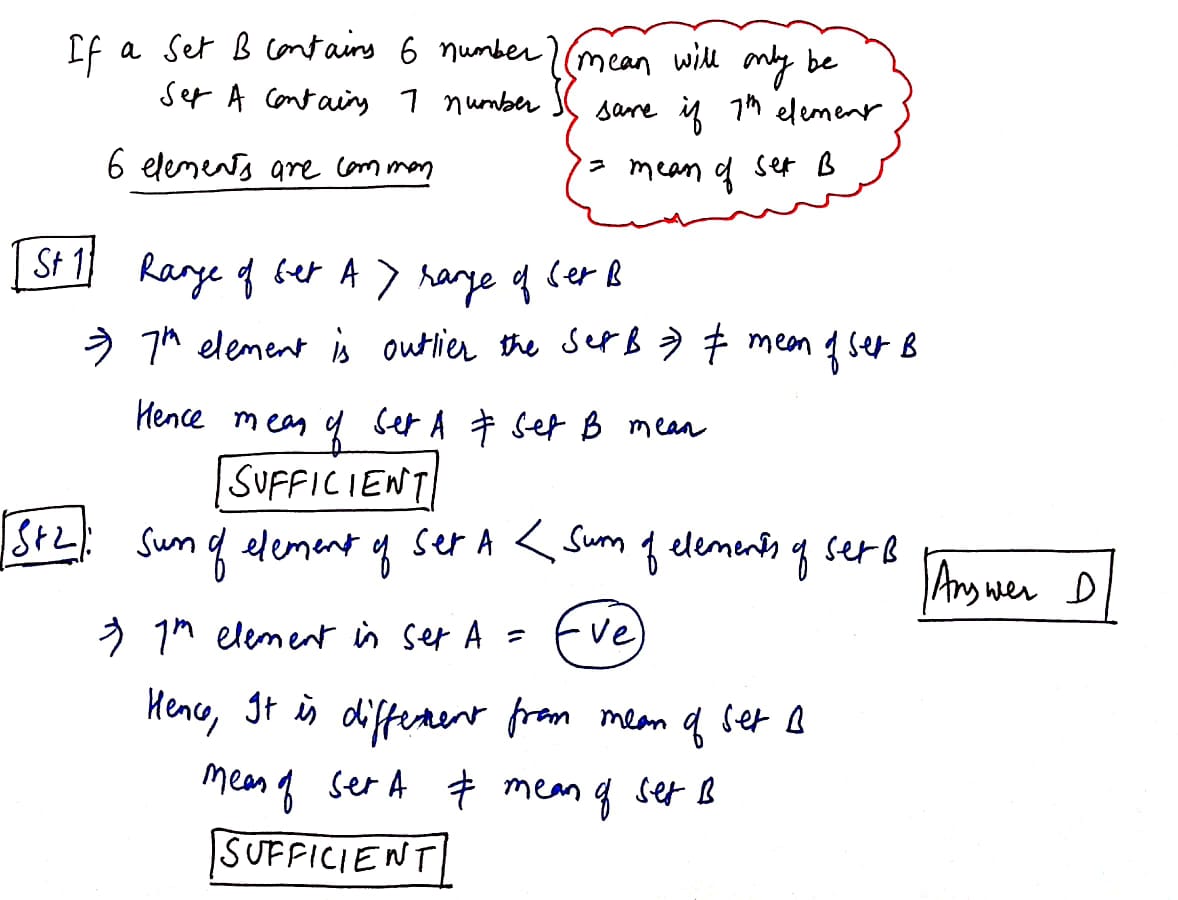Events & Promotions
|
|

GMAT Club Daily Prep
Thank you for using the timer - this advanced tool can estimate your performance and suggest more practice questions. We have subscribed you to Daily Prep Questions via email.
Customized
for You
Track
Your Progress
Practice
Pays
Not interested in getting valuable practice questions and articles delivered to your email? No problem, unsubscribe here.
- Nov 20
07:30 AM PST
-08:30 AM PST
Learn what truly sets the UC Riverside MBA apart and how it helps in your professional growth - Nov 20
11:00 AM EST
-11:59 PM EST
Don’t miss Target Test Prep’s biggest sale of the year! Grab 25% off any Target Test Prep GMAT plan during our Black Friday sale. Just enter the coupon code BLACKFRIDAY25 at checkout to save up to $625. - Nov 22
11:00 AM IST
-01:00 PM IST
Do RC/MSR passages scare you? e-GMAT is conducting a masterclass to help you learn – Learn effective reading strategies Tackle difficult RC & MSR with confidence Excel in timed test environment - Nov 23
11:00 AM IST
-01:00 PM IST
Attend this free GMAT Algebra Webinar and learn how to master the most challenging Inequalities and Absolute Value problems with ease. - Nov 30
10:00 AM EST
-11:59 PM EST
Get $325 off the TTP OnDemand GMAT masterclass by using the coupon code BLACKFRIDAY25 at checkout. If you prefer learning through engaging video lessons, TTP OnDemand GMAT is exactly what you need.
Kudos
Bookmarks
D
Be sure to select an answer first to save it in the Error Log before revealing the correct answer (OA)!
Difficulty:
 75%
(hard)
75%
(hard)
Question Stats:
48% (01:53) correct 52%
(02:02)
wrong
52%
(02:02)
wrong  based on 135
sessions
based on 135
sessions
History
Date
Time
Result
Not Attempted Yet
GMATBusters’ Quant Quiz Question -2
For questions from previous quizzes click here
Is the mean of Set A equal to mean of Set B?
A is a set containing 7 different numbers. B is a set containing 6 different positive numbers, all of which are members of set A.
1) Range of set A is greater than the range of set B.
2) Sum of all numbers in set A < Sum of all the numbers in set B
Kudos
Bookmarks
The Official Solution is as follows


WhatsApp Image 2020-02-03 at 6.49.55 PM (1).jpeg [ 82.86 KiB | Viewed 3198 times ]
Attachment:
WhatsApp Image 2020-02-03 at 6.49.55 PM (1).jpeg [ 82.86 KiB | Viewed 3198 times ]
Kudos
Bookmarks
Is the mean of Set A equal to mean of Set B?
A is a set containing 7 different numbers. B is a set containing 6 different positive numbers, all of which are members of set A.
Given:
1.Set A Consists of 7 different numbers - There is no specific information about whether they have 0 or negative numbers.
2.Set B consists of 6 positive numbers and all elements of Set B are part of Set A
1) Range of set A is greater than the range of set B.
Consider two different sets given below
Set A with first 7 numbers as elements and Set 6 with either from 2 to 7 or 1 to 6. When set B consists of 1 {1,2,3,4,5,6} , the mean is 3.5 and when set B consists of {2,3,4,5,6,7}, the mean is 4.5. In both the case the mean is not equal.
Consider having 0 in set A, in this case the range will be higher and the mean will remain same.
If A has a negative number, then range of A will be higher but the mean will vary.
Option A is not sufficient.
2) Sum of all numbers in set A < Sum of all the numbers in set B
Since Sum of all numbers is same and all of elements of Set B is in set A, the only number that could be in set A in this case is 0.
If we add only 0 to A, then mean of set A will be smaller than mean of set B.
Option B is sufficient.
Ans: B
A is a set containing 7 different numbers. B is a set containing 6 different positive numbers, all of which are members of set A.
Given:
1.Set A Consists of 7 different numbers - There is no specific information about whether they have 0 or negative numbers.
2.Set B consists of 6 positive numbers and all elements of Set B are part of Set A
1) Range of set A is greater than the range of set B.
Consider two different sets given below
Set A with first 7 numbers as elements and Set 6 with either from 2 to 7 or 1 to 6. When set B consists of 1 {1,2,3,4,5,6} , the mean is 3.5 and when set B consists of {2,3,4,5,6,7}, the mean is 4.5. In both the case the mean is not equal.
Consider having 0 in set A, in this case the range will be higher and the mean will remain same.
If A has a negative number, then range of A will be higher but the mean will vary.
Option A is not sufficient.
2) Sum of all numbers in set A < Sum of all the numbers in set B
Since Sum of all numbers is same and all of elements of Set B is in set A, the only number that could be in set A in this case is 0.
If we add only 0 to A, then mean of set A will be smaller than mean of set B.
Option B is sufficient.
Ans: B












